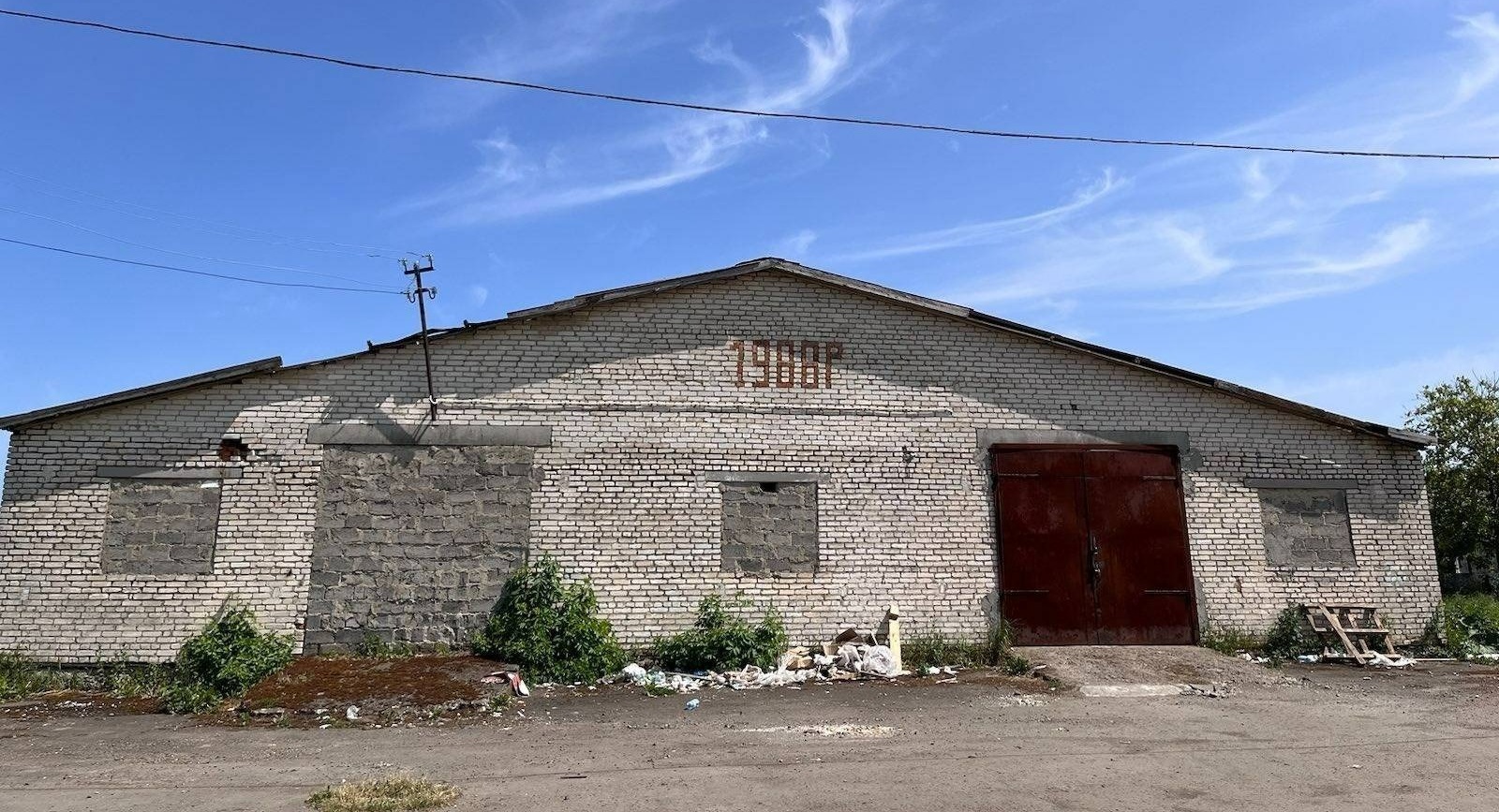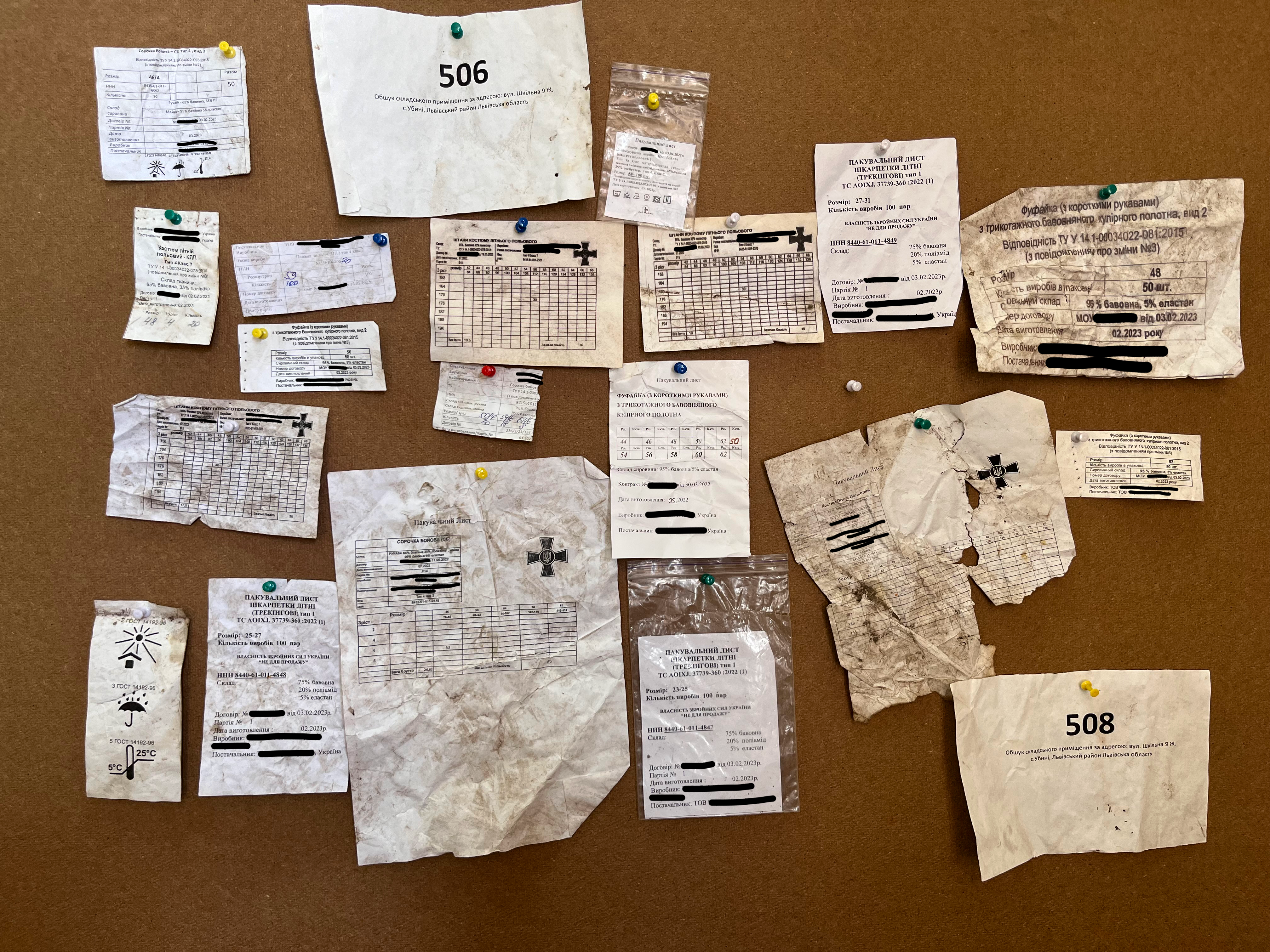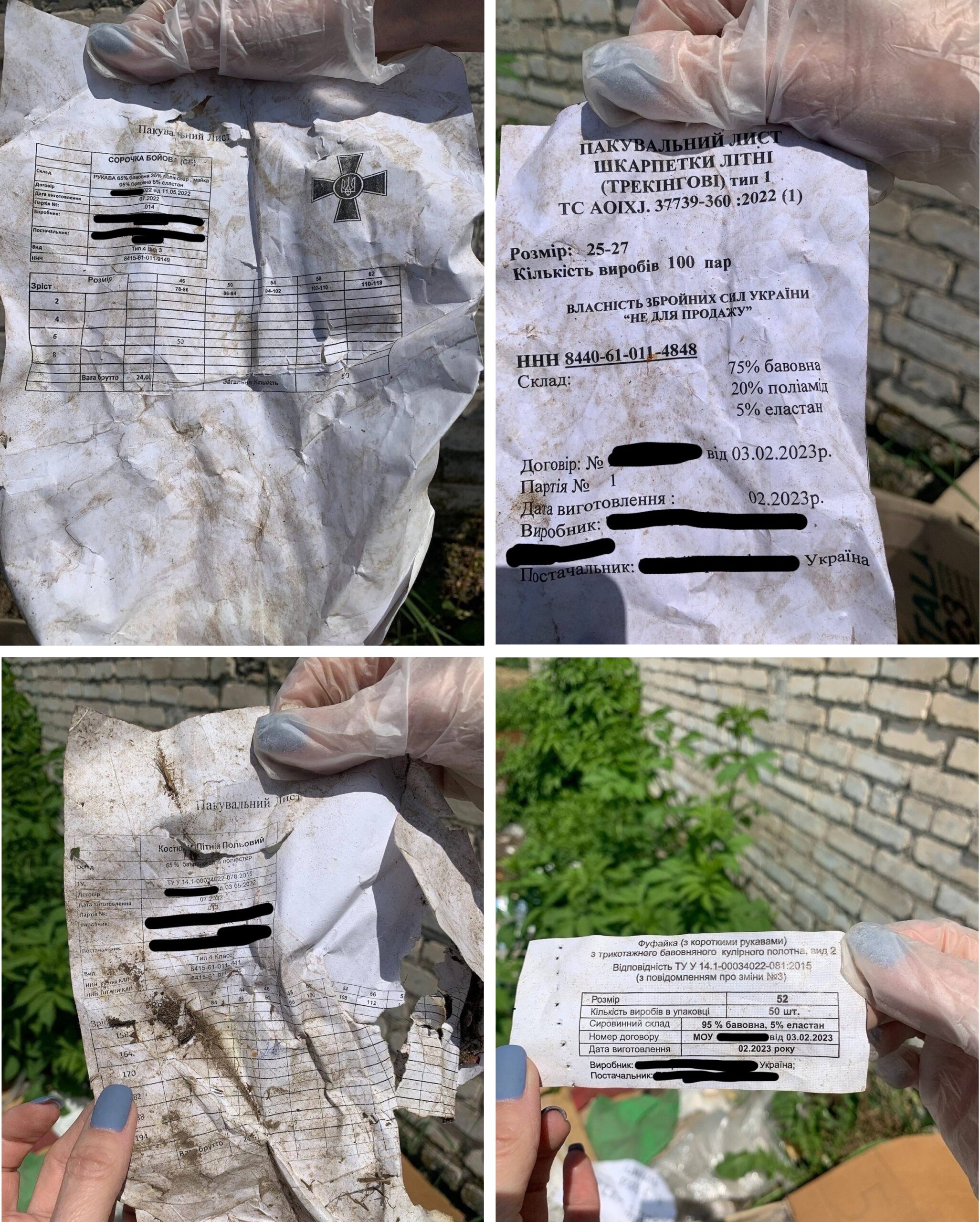Finding a clandestine warehouse (or, rather, two warehouses) with hundreds of tons of humanitarian aid in a small town Ubyni in Lviv oblast became a roaring success of the Bureau of Economic Security. However, the results of the investigation lasting over four months didn’t make anyone happy – there are no official suspects yet, despite the fact that both owners and leasers have been identified.
Scarce information about the investigation attests to the fact that for almost a year «unidentified individuals» have been stuffing warehouses with humanitarian aid that was growing mouldy there for months and only recently got to those who really need it.
However, this story had an unexpected turn. The documents found by NGL.media editorial team prove that what these warehouses held was not only humanitarian aid from abroad, but also produce for Ukrainian army manufactured on commission from the Ministry of Defence.
***
The first visit of NGL journalists to Ubyni took place on 26 April when we managed to identify the location of the found warehouses with humanitarian aid. Back then we ran into detectives of the Bureau of Economic Security who had been searching the place for several days.
Next time we came there in a month, on 28 May, after all the investigative actions at the warehouses were finished. Taking into account the silence of the Bureau of Economic Security, we wanted to talk to the locals about those who had been gathering humanitarian aid there for months. However, we found something different.
These warehouses are located on the outskirts of the village; further on are just fields. According to the locals, trucks were coming in and out for almost a year and the warehouses were guarded.
When we visited again in May, the warehouses were empty. Still, the results of the Bureau of Economic Security investigators’ work were plain to see.

A warehouse in Ubyni. It’s here in the heap of trash that journalists found the document we refer to in the text (photo by NGL.media)
Near both warehouses we found stacks of wooden pallets, plastic wraps, crumpled paper boxes with labels in Polish, Ukrainian, English and German, dirty clothes (both children and adult), bags, as well as sheets with numbers and signatures «Search of a warehouse at the address: Shkilna Street 9ZH, Ubyni village, Lviv district, Lviv oblast».
As of the moment of our first visit, when the searches were still ongoing, these heaps of trash weren’t there – let’s register this fact. Now, inside these heaps, we’ve found unexpected documents.
«Not for sale»
Labels and packing sheets (accompanying documents containing data amount the amount of goods, manufacturer and supplier, numbers of agreements and dates of their conclusion) were lying just to the left from the door to a warehouse, scattered around with other remnants of the things from the warehouse. All of these referred to the various elements of the military uniforms – like hats, hot weather field uniforms, padded jackets, socks, combat shirts, summer boots (a box with marking) and combat individual backpacks.
These documents definitely turned up just recently, for they weren’t there a month before. We found almost 20 pages like that, many of them directly indicating that these goods are a property of the Armed Forces of Ukraine and they are not intended for sale. Numbers of some contracts start with the abbreviation MOU (Ministry of Defense of Ukraine). Only one manufacturer of the above turned out to be foreign, and all the rest were Ukrainian.
According to these documents, military goods were produced not only in 2022, but also in 2023. The most recent documents were dated by February this year, and one document even by March – it was partially preserved. As a reminder, investigation on the warehouse in Ubyni officially started on February 4.
NGL editorial team managed to verify the authenticity of several documents we found – such contracts were indeed concluded with the Ministry of Defence. So, we presume all of these are authentic. We also managed to confirm that one of the manufacturers was supplying the ordered goods to a military warehouse in a Western oblast. Investigators were supposed to find out how these goods ended up in a shady warehouse in Ubyni.

NGL found documents accompanying goods for the Ministry of Defense (we hid numbers of contracts and names of suppliers)
The Ministry of Defense gave an evasive response to the NGL’s request with a detailed list of contracts: «…military uniforms and gear, in compliance with the provisions of the concluded contracts for the period of 2022-2023 have been supplied in full to the Joint Center of Supplying Military Uniforms and Gear (place of delivery of Goods (batches of Goods) as per provisions of the contracts».
The Ministry of Defense also claims there are no military warehouses in Ubyni, and the Bureau of Economic Security also didn’t report finding there anything but humanitarian aid. So, how did these documents end up near the clandestine warehouses?
First tax dodging, then illegal humanitarian aid
First, territorial directorate of the Bureau of Economic Security in Lviv oblast was investigating this case under Art. 212 of the Criminal Code of Ukraine (evasion of taxes, duties (mandatory payments) for the goods imported into the country). However, the case has been lately transferred to the police – now it’s being investigated under Art. 201-2 of the Criminal Code of Ukraine (illegal use of humanitarian aid, humanitarian supplies or gratuitous help with the purpose of receiving profit).
According to the latest press release, the Bureau of Economic Security received the documents confirming the origin of goods from the EU countries from the customs. However, the customs couldn’t confirm either this information for NGL or who was importing it and for whom, as there were numerous requests from the Bureau of Economic Security as well as the humanitarian loads that crossed the border since the beginning of the full-scale invasion.
At the same time, there isn’t a single word in either press release from the Bureau of Economic Security that the warehouse could be storing not only humanitarian aid, but military goods manufactured with the budget funds. «Food products, goods for children, bedclothing, blankets, personal hygiene product, detergents and clothes – about one thousand palettes in total», that’s how the press release was describing the found assets.
First, Lviv Bureau of Economic Security neither confirmed nor denied presence of combat backpacks, field service dress and elements of military uniforms in Ubyni in its response to NGL’s request, as the requested information «contains the records of pre-trial investigation which is currently ongoing». Later the Bureau of Economic Security directly claimed that no military goods were found in Ubyni warehouses.
Public prosecution office of Lviv region in response to NGL’s request also denied having found military goods during the search. Still, it’s highly unlikely that someone could intentionally or accidentally throw real documents for military munitions supply into the trash near notorious warehouses.
We believe that the found documents (we consciously refrained from publishing detailed information they contain) are the evidence of one thing only: military goods were indeed stored in the warehouses. Investigation should establish whether they were still there when the search took place or they were promptly taken away before it.
P.S. Earlier on NGL reported that «Nyva Odyn» LLC has been leasing the land plot where warehouses are located. It is owned by Taras Ziniuk, 32 from Volyn, but we couldn’t reach him. Iaroslav Maksymovych had signing powers from «Nyva Odyn». Talking to NGL, he confirmed that these were his warehouses the Bureau of Economic Security were searching, but he refused to answer the clarifying questions.
Several weeks age we found that warehouses were given to Maksymovych for use by absolutely different people. And that’s not «Nyva Odyn» company that leases the land plot, but individuals – Andrii Sliuzar and Luibomyr Mamchuk. Yesterday, on June 19, the court of appeal refused to withdraw the seizure of their warehouses at their requests. Neither Sliuzar, nor Mamchuk, nor their lawyer attended the court session. Still, lawyer Ihor Vasyliuk was previously assuring NGL that his clients had nothing to do with the story of the humanitarian warehouse.
The public still doesn’t know who was stocking up hundreds of tons of goods in these warehouses; no specific suspicions were presented despite investigators having a variety of tools in their disposal: from access to CCTV footage (including motor roads) to customs information.
While the Bureau of Economic Security is keeping everyone happy with their short press releases, like gave goods to the military and affected areas, found the owner and lessee of warehouses and a charity foundation that was operating at the same address.
In reality, everyone is interested in something different. Who exactly was hiding humanitarian aid in clandestine warehouses for commercial gain? Were there any goods intended for the military?


